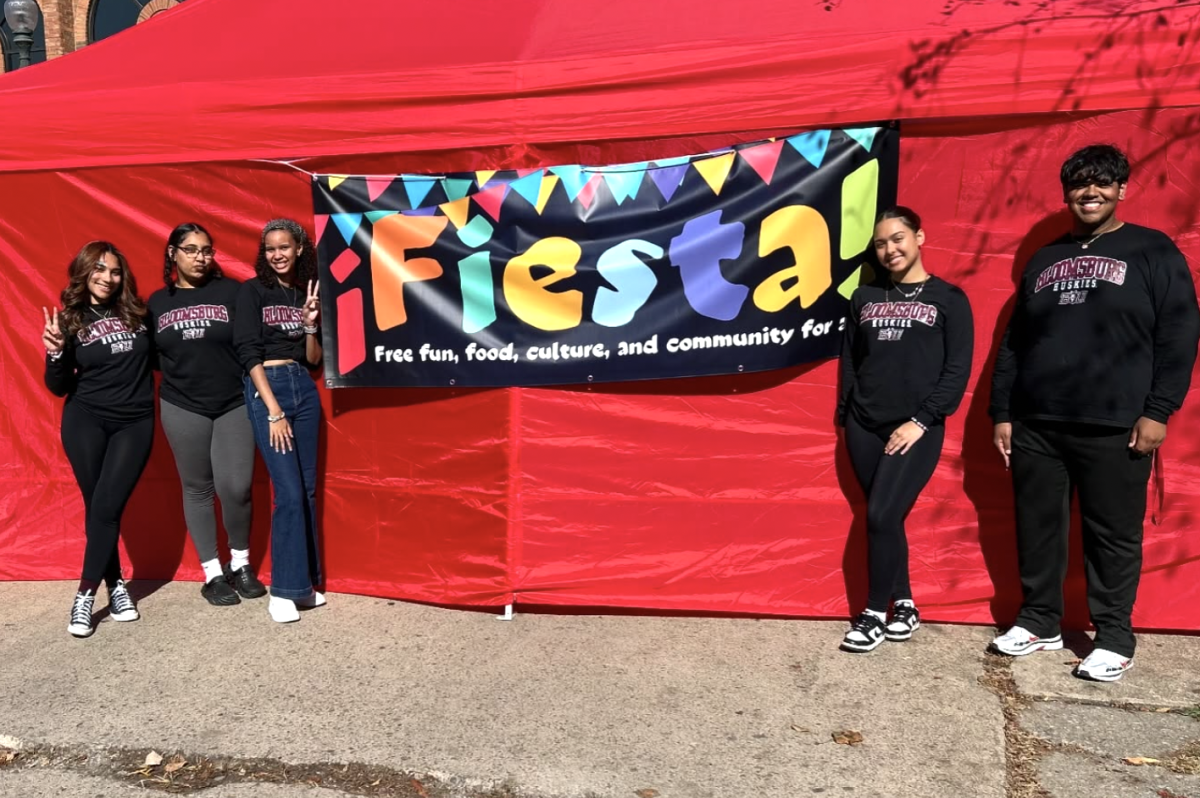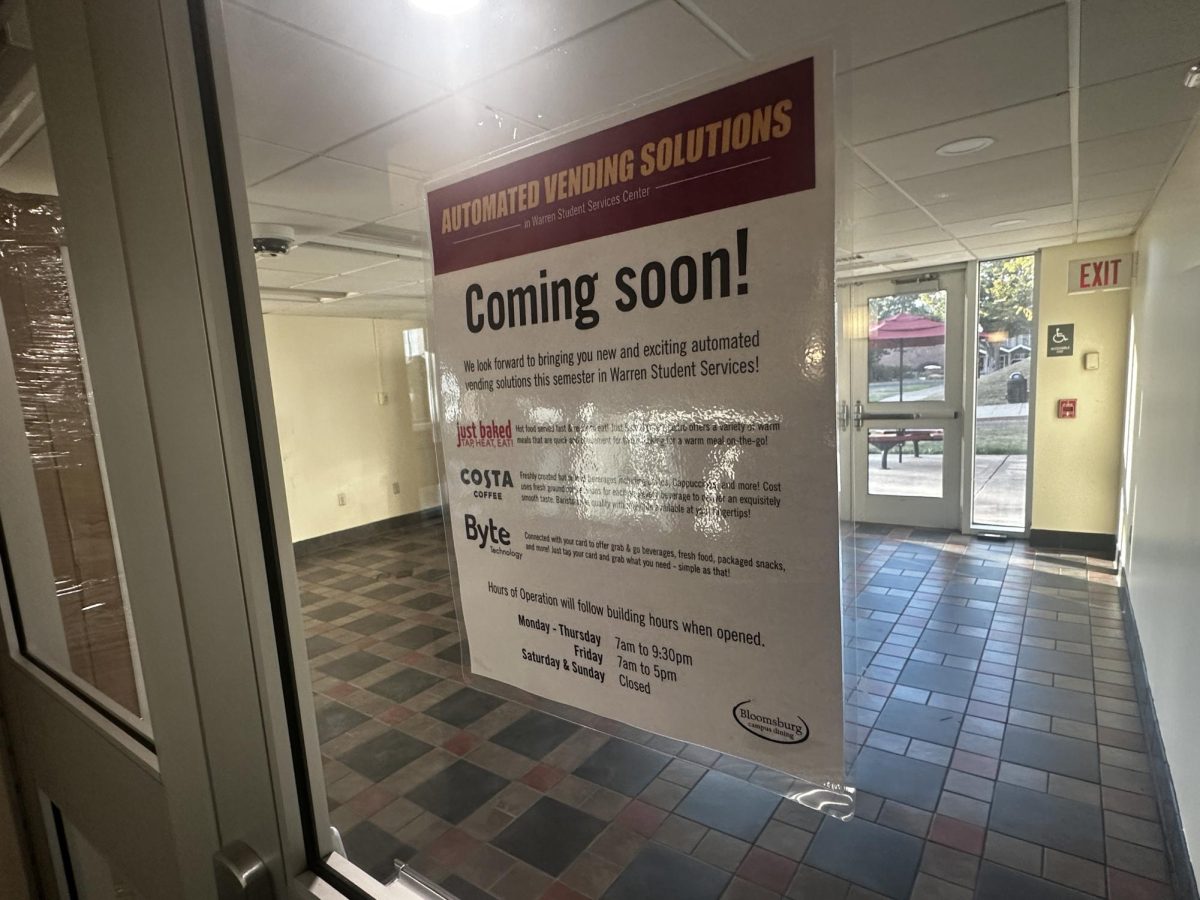From knowing one of the world’s most powerful leaders to becoming a rebel against her father’s regime, Alina Fernandez shared her experience as the daughter of former Cuban President Fidel Castro on Monday in Carver Hall. The event is part of BU’s celebration of Hispanic Heritage Month sponsored by multiple organizations including the Student Organization of Latinos (S.O.L). Fernandez was introduced by Angela Montano, the president of S.O.L., and during her introduction Montano described Fernandez as a rebellious individual who was forced to leave Cuba in 1993.
Once Fernandez got on stage she started talking about her mother and the type of person she was.
“My mother was born in 1925 and she was a person that loved art, books and had amazing curves,” said Fernandez.
She described the relationship that her mother had with Castro.
“He was the leader of an illegal movement and she supported him. I think their love began that way. It was a bizarre atmosphere whenever I saw them together and his presence made my mom so joyful. Only my grandmother would call him the devil and I use to be so confused. When Castro was arrested he use to write love letters to my mother and his wife at the time. One day he sent both letters to the wrong person and let’s just say he didn’t have a wife after that,” said Fernandez as the audience began to laugh.
Her speech then transitioned to Castro’s revolt against the Batista government in Cuba.
“I remember as a child I use to hear chants outside my house of people yelling “Long Live Cuba” in Spanish.”
Fernandez was three years old when Castro overthrew the Batista government in 1959 during the Cuban Revolution.
“1959 is when it all began,” said Fernandez. “My father use to give speeches that were seven hours long and the crowd loved him, they were mesmerized by his words. I remember sitting in front of the television screen in the living room wanting to watch Mickey Mouse and Donald Duck cartoons but instead my father was on the screen for over seven hours,” said Fernandez.
She then described the type of relationship that she had with the former Cuban president.
“My father was a night man, he use to only come visit me at night and play with me until dawn. He would then disappear for months at a time. I knew then that I could never call him a regular father,” said Fernandez.
After 1959, everything in Cuba began to change as Castro started to divide the country.
“A frightening atmosphere began to rise in Cuba,” said Fernandez, “Over 4,000 visas were issued for children to come to the United States because the island was not safe anymore, parents were worried but eventually coming to the United States was banished,” said Fernandez.
Cuba was then experiencing a change that Fernandez described as chaotic.
“Every institution was reinvented,” said Fernandez. “There was nothing that was not touched. The economic chaos was set in 1961 and food started to disappear.”
Fernandez described her upbringing as an experience that was not normal compared to the average teenager in Cuba.
“I didn’t know my family much so I can’t even say that I missed them. I lived with my mother and my stepfather Orlando Fernández which is where I got my last name from. Me and him lost contact and unfortunately he passed away. My relationship with my sister was difficult. I know she suffered a lot. My teenage years were filled with campaigns, walks and listening to my father’s speeches. About two or three years after the revolution, Castro was aiming to control people in the most absolute way,” said Fernandez, “It was overwhelming: within a short period time Castro was able to become the chief of the Cuban military, redesign the entire constitution, execute any enemies of the revolution and established hate towards America on an international level. How did he manage to do all of this? Still it is a mystery.”
As the daughter of Cuba’s president, Fernandez started to form her own opinion about his political agenda during the 1970’s, around the same time that she gave birth to her daughter.
“People from the streets use to beg me to help them, they wanted me to be a messenger to my father and I wanted to be helpful. I would tell him what was being said and he would say that those are words of traitors,” said Fernandez. “I think that’s why I kept trying to hide behind my name in the streets, which didn’t work, because of the guilt. I felt like I was in war with myself, with my own identity.”
Once she started to branch off on her own, Fernandez officially became an enemy of her father’s revolution which led to her escape to Spain in 1993.
“I use to march in uniforms with the people and yell in slogans,” said Fernandez. “After the revolution my father had become a dictatorship. The state own your personal life, food was impossible to find and schools were closed. I became a critic of the Cuban regime.”
Fernandez did not return to Cuba until 2013 to reunite with her mother.
“Eight years ago you could not own your own house, hotels were forbidden, farmers could not own their own land, now you can do all of those things. We do have a free health care system but it’s very twisted. We have thousands of graduating doctors from Cuba but they are all sent to other counties,” said Fernandez.
She then ended her speech on a positive note.
“One of the things that I can say is that music is one of Cuba’s treasures, the joy of dancing kept people sane all of these years during the rough times and yes it changed a little but it is still difficult and I am hopeful for the future.”

Alina Fernandez (above), the daughter of former Cuban President Fidel Castro, helped to kick off Hispanic Heritage Month by speaking to BU students about her life growing up in post-revolution Cuba, and how she came to be a political exile.





















